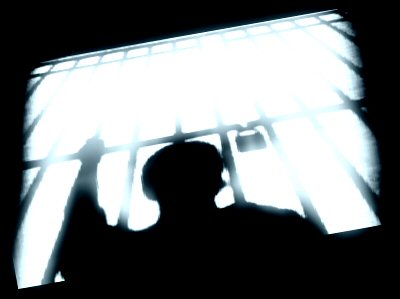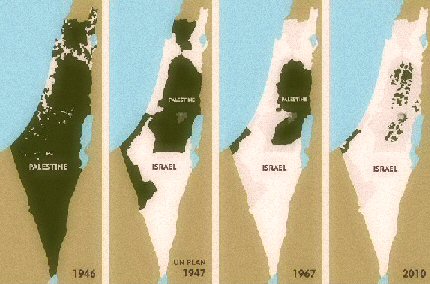Israeli forces detained a Palestinian child near the village of Maghayir al-Abeed and demolished four structures in the Palestinian village of Ar-Rifa’iyya in the South Hebron Hills area on Wednesday.An Operation Dove press release said that bulldozers tore down two houses and two animal shelters belonging to the Rabai family of Ar-Rifa’iyya. The demolitions affected a total of 25 people, including 10 children.
The families required municipality aid to keep them in a safe place, after being left homeless. The municipality offered two tents for the affected families to stay, at least, during the night.
Just 20 days ago, in the village of Ad-Deirat, near Ar-Rifa’iyya, two settlers broke a window and threw a molotov cocktail inside a Palestinian-owned house, trying to burn it, said Operation Dove.
Ar-Rifa’iyya and Ad-Deirat villages are located in Area C, under Israeli military and administrative control, WAFA correspondence further reports.
While Ar-Rifa’iyya demolitions were being carried out, Israeli army and police jeeps reached the area of Old Havat Ma’on Hill near the Palestinian village of Maghayir al-Abeed, where some young Palestinian shepherds were grazing their flocks.
An Israeli soldier ran after a Palestinian child, aged 14. The soldier chased away the boy’s flock, put the child inside the military jeep with one goat and detained him.
After an hour, the army released the boy in an extremely dangerous place, between the illegal Israeli outpost of Havat Ma’on and the illegal settlement of Ma’on. In this place several times Palestinians, including children, were attacked by extremist Israeli settlers.
The Palestinian Prisoners Center for Studies stated that, during 2014, Israeli soldiers arrested 1,200 Palestinian children, showing a 60% increase comparing to 2013, when the soldiers arrested 750 children.
See 12/30/14 : 3755 Children Kidnapped In Past Four Years, 1266 in 2014 Alone
— —
In related West Bank news, WAFA further reports that 14-year-old Malak al-Khatib, from the village of Beitin, was taken from Ofer military court to begin serving her two months sentence in prison, for alleged rock throwing and possession of a knife.
After being detained for 23 days, Malak was sentenced to two months in prison and a fine of 6000 shekels ($1523), even though she had hopes of being released to reunite with her family who has been living in distress ever since Malak was detained on December 31, 2014.
Malak’s father, Ali al-Khatib, told WAFA that his daughter was detained allegedly under the pretext of throwing stones at Israeli soldiers at the bypass road near her school, which he denies could have happened:
“She was leaving school after attending her last exam for the first semester when all of a sudden soldiers jumped at her, handcuffed her hands and took her with them,” he said.
A military decision was supposed to be made on January 4th, however the court postponed her hearing to January 11.
Malak’s additionally told media, “We hoped that she would be released in yesterday’s session. We were so optimistic, but the judge’s decision shocked us. Malak suddenly broke down and started crying.”
He recalled the day of Malak’s arrest and says, “When I went to the detention center to see Malak, thinking a misunderstanding must have took place, soldiers told me “she is not a child, she scared us and threatened the life of a soldier.”
Malak’s detention was extended several times, and she spent around 23 days awaiting her ruling. At the time, the lawyer defending her was trying to reduce the fine.
She is now serving her sentence in Hasharon detention center with three other female prisoners who are, according to her father, taking care of Malak and supporting her emotionally.
Malak is considered the youngest prisoner currently serving a sentence in Israeli jails. She is one of 7000 Palestinian children who were arrested since the start of the second Intifada in September 2000, many of whom are still serving sentences.
Lawyer Ayed Abu Qutesh told WAFA that, even though the International law allows the detention of minors, it should be always the last decision that any court or state takes. All concerned parties should try to find other alternatives to the detention and actual imprisonment of children, such as fines and suspended imprisonment.
Lawyer Jawad Bolous explains “the Israeli occupation’s policy of arresting minors contradicts with all international laws regarding minors. It starts at the very moment of arrest where soldiers forget that they are arresting a minor, treating the children in a very barbaric way. The minors go through detention until the ruling, while Israel ignores the grave consequences of this detention on their lives.”
Malak’s family wasn’t able to visit her at the detention center, but only saw her at the court on January 11 for the first time after her arrest. Her father said then that she looked distressed and scared. “After all she is only 14,” he explained desperately.
WAFA tried to reach Malak’s father once again to learn more about the condition of Malak now that she is serving the sentence, but he remains out of reach.
Meanwhile, the Ministry of Education condemned in a press release the ruling, describing it as a “heinous crime”.
According to the Defense for Children International Palestine (DCI-Palestine), “Israel is the only state to automatically and systematically prosecute children in military courts that lack basic standards of due process.”
It said in a report on the arrest of minors by Israel that “Around 500 – 700 Palestinian children, some as young as 12, are arrested, detained and prosecuted in the Israeli military detention system each year. The majority of Palestinian child detainees are charged with throwing stones.’
While Palestinian children endure such conduct, no Israeli children come into contact with the military court system, proving the amount of discrimination in the Israeli system.
A UNICEF report concluded that ill treatment of Palestinian children in the Israeli military detention system appears to be ‘widespread, systematic and institutionalized’.
“On average 700 Palestinian children a year, appear before Israel’s military court,” the United Nations has said.
About 726,000 Palestinian men, women and children have been through the court since the occupation of the Palestinian Territories, in 1967.
A testimony of a child identified as Z.Q., who was detained by Israeli soldiers, published in a Military Court Watch report, says “I was dragged downstairs and I banged my head against the front door, because I was blindfolded and the soldiers were careless. I was in shock and pain. The impact of the bang was so hard I bled.”
According to the report, children detainees are treated harshly in most cases. It mentioned measures such as binding hands and eyes, signing documents in Hebrew, physical and verbal abuse, night arrests, threats, strip searches and solitary confinement to name a few.
Local and international media outlets reported on Israel’s cabinet’s decision to back a law change allowing harsher sentences of up to 20 years for stone throwers after the recent tensions in Jerusalem’s Old City.
See 01/08/15 Palestine to Join ICC on April 1st
— —
Meanwhile, on Thusday, an Israeli court released two security guards stationed at the illegal settlement of Itamar, southeast of Nablus, a day after their arrest under the pretext of firing at two Palestinians earlier January.
According to Israeli army radio, the court decided to release two security guards, arguing that they ‘aimed at the open air and didn’t intend to shoot the two Palestinians’.
The security guards, accompanied by the army earlier in January, attempted to arrest four Palestinians and, during the arrest, the guards opened fire on two, injuring them.
The two sustained moderate injuries and the two then-suspects were referred to the Magistrate’s Court in Petah Tikva, East of Yaffa to extend their detention, pending an ongoing investigation.
— —
Also on Thursday, Israeli forces demolished Palestinian residential structures and sheds in Beit Iksa village, to the northwest of Jerusalem.
Head of Beit Iksa Village Council Sa‘ada Khatib said that Israeli troops, accompanied by military bulldozers proceeded to demolish residential structures and sheds belonging to the Ad-Dahawiq Bedouin tribe.
Khatib added that forces routinely target the village, placing it under siege and cordoning it off. He urged competent authorities to intervene in order to support the villagers, given the lack of public services and intermittent transportation.
According to the Beit Iksa Village Profile, prepared by the Applied Research Institute of Jerusalem (ARIJ), the village consists of an area amounting to approximately 7,989 dunams. Approximately 591 dunums, accounting for only 7.4%, are assigned as Area B, whereas about 2,849, accounting for 92.6% are assigned as Area C.
Israel retains full control over Area C, where the Palestinian villagers are prohibited from building and land management unless they obtain permits from the so-called Israeli Civil Administration.
Most of the land making up Area C is agricultural and open spaces, to which access is very difficult for local villagers.
Israeli occupation authorities have seized about 2,000 dunums for the construction and expansion of illegal Israeli settlements and the construction of the apartheid wall.
According to data issued by ARIJ in 2012, a total of 1,545 have been seized for the establishment of the illegal ‘Har Samuel 2’ and ‘Ramot 3’ (Also known as ‘Ramot Alon’) settlements.
These illegal settlements form a part of the ‘Giv’at Ze’ev’ settlement bloc which Israeli occupation authorities have constructed in order to retain control on the northwest of Jerusalem. This step is inextricably related to Israel’s plan to annex all settlements in the West Bank.
Other large tracts of land have been seized from the village to construct bypass roads 436 and 4915 to connect Israeli settlements established on the village’s lands with other Israeli settlements. In addition, Israeli forces have seized lands extending 75m along each side of the road as a buffer zone.
Israel has constructed part of the wall on lands belonging to the villagers. The wall route extends 9 km over the village land and isolates 7,840 dunums, accounting for 98.1% of the total area, from the southeastern and southwestern sides of the village.
The isolated lands include open space and agricultural lands which constitute a major source of capital for the village’s residents.
The village remains isolated from neighboring Palestinian villages to the northwest of Jerusalem City. The residents are not allowed to travel to Jerusalem City, and the only exit is through an Israeli checkpoint established on the north-western entrance.
See also: 01/23/15 Construction of 2,500 New West Bank Settlement Units to be Approved by Israel


